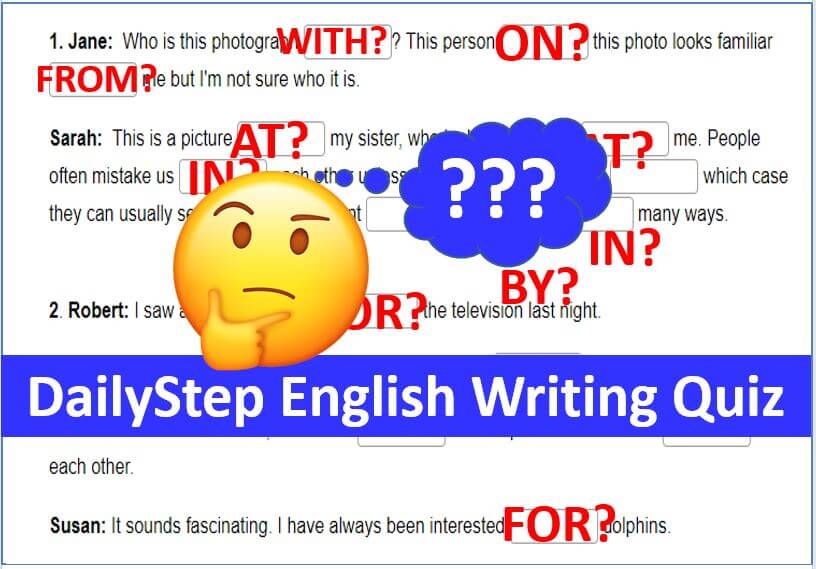Using SHOULD, and the difference between SHOULD and OUGHT TO

How to use SHOULD, and the difference between OUGHT TO and SHOULD
Hello, I’m Jane at DailyStep English and welcome to my Audio Blog!
This blog will teach you 3 common meaning of SHOULD, and the difference between SHOULD and OUGHT TO.
If you are new to DailyStep English – welcome 🙂 Please sign up here for more free Audio Lessons.
Here is Audio Word Study #115 from Jane Lawson at DailyStep.com
SHOULD (modal verb), and the difference between SHOULD and OUGHT TO
In English grammar, SHOULD is a modal. Modals give a special meaning to a verb, and they are always followed by the BARE INFINITIVE form of the verb, in other words, the infinitive WITHOUT “TO”.
So, for example, it is wrong to say ‘I should to learn English’, and it is correct to say ‘I should learn English.’
Here are 3 common ways of using SHOULD. I will cover others in a future blog.
Meaning 1: We use SHOULD when we want to say or ask what is the correct or best thing to do. It is a way of asking for or giving advice.
Note: In this meaning, we can also use OUGHT TO instead of SHOULD. The difference is that OUGHT TO is stronger in meaning – so be careful with it!
Examples: 1. You should drive more slowly in this freezing weather. (note: if you say ‘You ought to drive more slowly…’ it sounds much stronger, and could offend the person that you say it to!)
2. “Do you think I should invite them to my party?” “Yes, I think you should.”
3. This television never works as it should. Look at the picture – it’s terrible! (note: in this sentence ‘never works as it should’ means ‘never works in the way that it was designed to work’.)
4. I should have apologised to him after I was so rude. I’ll call him later to say sorry.
5. The baby is hungry – he should have been fed hours ago.
Meaning 2: We use SHOULD to express expectation, or to say that something will probably happen.
Note: we sometimes use OUGHT TO instead if SHOULD with this meaning but not very often. Again, it sounds stronger.
Examples: 1. My father should be here by now – he usually arrives at this time. (note: if I say ‘My father ought to be here by now…’ it sounds like I may be a bit annoyed that he is not here yet. )
2. You should find this restaurant very easily with this map.
3. “Can you please finish this work by the end of the day?” “Yes, that shouldn’t be a problem.” (note: this means ‘I don’t expect that it will be a problem.’)
Meaning 3: We sometimes use SHOULD after why when we are asking the reason for something.
Examples: 1. Why should anyone want to be so cruel to an animal? (note: this expresses surprise and outrage.)
2. Why shouldn’t they go on holiday if they want to do so?
3. “Will you do me a favour?” “Why should I? You never do anything for me!” (note: this kind of sentence might be used in an argument.)
Now, write your own sentences using SHOULD. Try to make them true to your own life if possible as this will help you to remember them better.
If you enjoyed my Audio Blog, please share it. Thank you 🙂
How to speak English fluently and understand fast English
DailyStep English Audio Lessons are designed to help you learn to speak and understand English at the speed that we speak it.
No matter how good your English is, you need to be able to follow a fast conversation in order to participate.
DailyStep English courses are fully accredited and you can get an internationally-recognised certificate for your CV or resume.
How to use your lessons:
How to slow the audio:
How to Start Daily Audio Lessons
✔ Daily Audio Lessons + Premium Audio in my Blog Library
✔ Your lessons never expire – you can take them again any time
✔ Change your level any time
✔ 100% happy or your money back!





